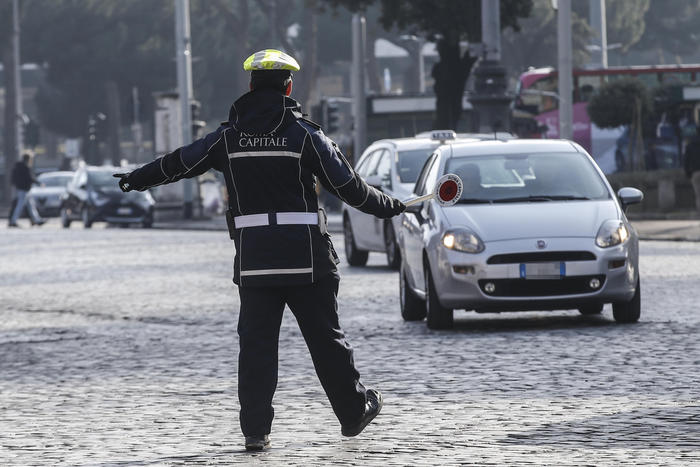The lockdown had considerable effects on the movement of citizens and therefore on emissions from the transport sector, which in March-April 2020 marked a setback in several Italian cities. The main collapse of nitrogen dioxide (NO2) occurred in Rome, where the average concentrations are lower than the previous years (2016-2019) by 59% for March and 71% for April respectively.
In Turin, on the other hand, the decrease is 43% for March and 51% for April, in Milan there was a reduction of 29% and 43% compared to the average for the same period 2016-2019, while Naples recorded respectively a reduction of 33% and 57%.
This is what emerges from "Mobilitaria 2020" the annual study of Kyoto club and Institute on air pollution of the National Research Council (Cnr-Iia) which focuses on the trend of air quality and urban mobility policies in the 14 major cities in 2019-2020 and in the first four months of this year, being illustrated in a webinar on Facebook.
Pollution: better air in 2019, but Cagliari black jersey
In 2019, the quality of the air in the 14 Italian metropolitan cities has improved, albeit slightly, compared to 2018 even if some critical values remain. This is indicated by "Mobilitaria 2020", the annual study of Kyoto club and Institute of atmospheric pollution of the National Research Council (Cnr-Iia) on air quality and urban mobility policies in the largest cities in 2019-2020 and in the first four months of this year.
The study considers the three pollutants particulate matter (Pm10 and Pm2.5) and nitrogen dioxide (No2) and indicates a reduction in the average No2 levels compared to 2018 in Genoa (-10%), Bologna (-9.4%), Turin (-4.5%), while Bari, Cagliari and Venice are against the trend with concentrations in Cagliari increasing by 26.3%. The average concentrations of Pm10 in all the cities analyzed are below the limits, while more than 35 times the daily limit in Turin (83 exceedances), Milan (72), Venice (68) Cagliari (56) and Naples (37 ). The concentrations of Pm2.5 do not indicate particular critical issues, except for an improvement in Turin, Milan and Venice compared to 2018.
Dl relaunch: Kyoto club and Cnr, timid measures against traffic
Despite "the executive's positive efforts, it is necessary to improve the relaunch decree, as the measures contained therein are timid, not sufficient to counteract the growth of congestion and traffic that they will gradually invade our cities again. " Kyoto Club and Cnr-Iia affirm this in view of the discussion and approval in Parliament of the provision in particular in relation to measures on mobility and transport.
The think tank that aims to reduce greenhouse gases together with the Cnr Institute on Air Pollution - on the occasion of the presentation of the "Mobilitaria 2020" report on air quality in 14 metropolitan cities in 2019 and in the first months of 2020 - observe that "the decision to allow the purchase of new diesel buses is at odds with the decarbonisation strategy and should be abolished; resources for the mobility bonus are scarce and will be able to satisfy only about 300,000 users; cities are not supported in investments for cycle, pedestrian and micro mobility mobility, to create lanes and cycle paths, parking lots, spaces and pedestrian paths, widening of sidewalks.
It should be introduced in the highway code - they suggest - the double cycle way and the school roads "while" there is no increase in the resources of the scrapping fund and the incentive for the purchase of electric motorcycles and scooters, no measures are envisaged for urban freight logistics and for the reorganization of deliveries in a sustainable sense and the intervention tools for Mobility Managers must be strengthened ".
For the restart of mobility, after the lockdown caused by Covid-19, Kyoto club and Cnr propose - among other things - to maintain smart working and proximity services, a schedule of city schedules for entry to work, to school, in public and cultural services to reduce peak times. And still widening sharing mobility, increasing bicycle and pedestrian traffic but also electric vehicles, supporting public transport and providing sustainable urban logistics services. March and 51% for April, in Milan there was a reduction of 29% and 43% compared to the average for the same period 2016-2019, while Naples recorded a reduction of 33% and 57% respectively.
This is what emerges from "Mobilitaria 2020" the annual study of Kyoto club and Institute on air pollution of the National Research Council (Cnr-Iia) which focuses on the trend of air quality and urban mobility policies in the 14 major cities in 2019-2020 and in the first four months of this year, being illustrated in a webinar on Facebook.

